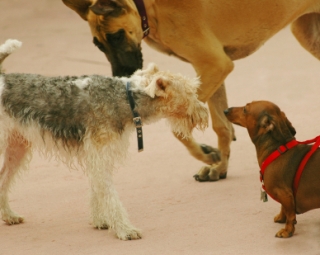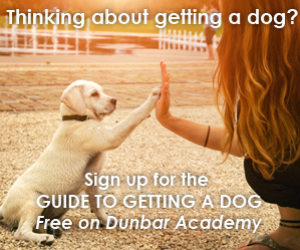Siblings and Roommates Don't Count

I’m often asking dog owners about their dog’s socialization history. Even if the dog owner tells me that their dog is “good with other dogs”, I have to ask more questions. Time and again, the dogs that their dog is good with include the siblings he played with at the breeder’s home, the dog he lives with and a relative’s dog. That’s it.
When I tell them that siblings and roommates don’t count, we get to the truth of the matter. The dog may be nearly a year old and have only met one or two other dogs, besides siblings and roommates. Now, I know that dog owners reading this might not see this as a big problem, as long as the dog was good with those dogs, we should be able to assume he’d be good with others, right? Wrong.
Socialization is a continuing process, not a single event. We can’t say that a human is well socialized if the only people he sees until his teen years are his siblings and his parents. Imagine a child who had only played with his siblings for 14 years being dropped off at middle school! No matter how well he may have played with siblings, I think we’d expect him to be lacking severely in social skills. It’s certainly unfair to expect dogs, with their shorter “childhoods”, to become masters of social grace after being exposed to only two or three of their species.
Different dogs have a wide array of play and communication styles. Dogs come in many different sizes, colors, ages and personalities. If a dog has only played with his siblings (dogs like him) and his roommate (perhaps a Beagle), he is going to be quite surprised and possibly confused the first time he’s face to face with a big, bouncy Boxer!
Before a dog is 5 months old, he needs to meet a wide variety of dogs! Big dogs, little dogs, young dogs, old dogs, bouncy dogs, roly-poly dogs, barky dogs, yappy dogs, quiet dogs, brown dogs, white dogs, brindle dogs, fuzzy dogs, dogs that like to chase, dogs that like to be chased, dogs that don’t want to play at all…getting the idea?
Now wait, I can’t end there. Remember, socialization is a process and that process doesn’t end after puppyhood. It’s imperative that a well-socialized pup continues to meet other dogs throughout adolescence. Otherwise, that great foundation you’ve started will start to unravel quickly.
If you’re new to Dog Star Daily, check out the information on puppy socialization and adolescent changes in the Digital Training Textbook. If you’ve been here a while, I’m betting you know someone who needs to read it.




